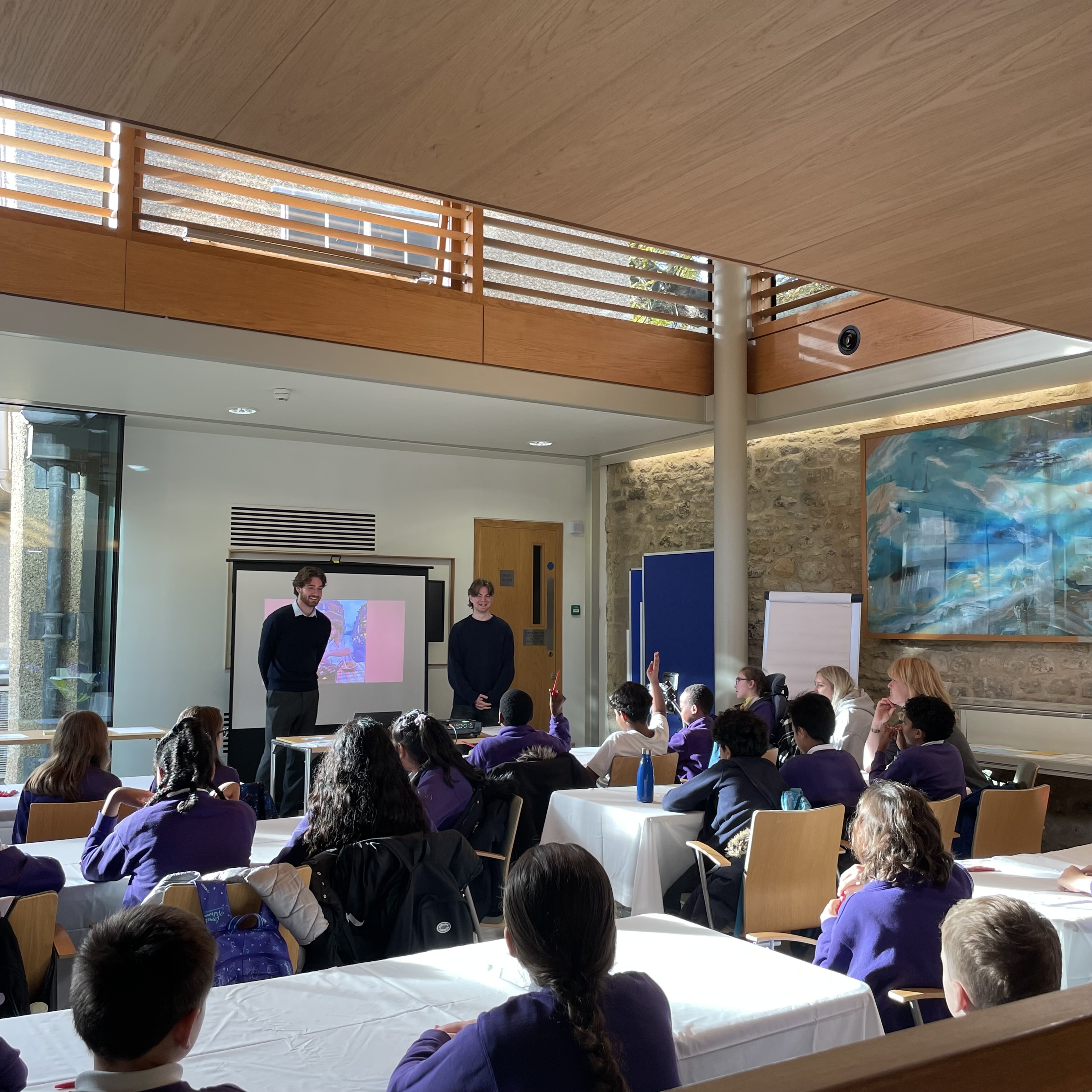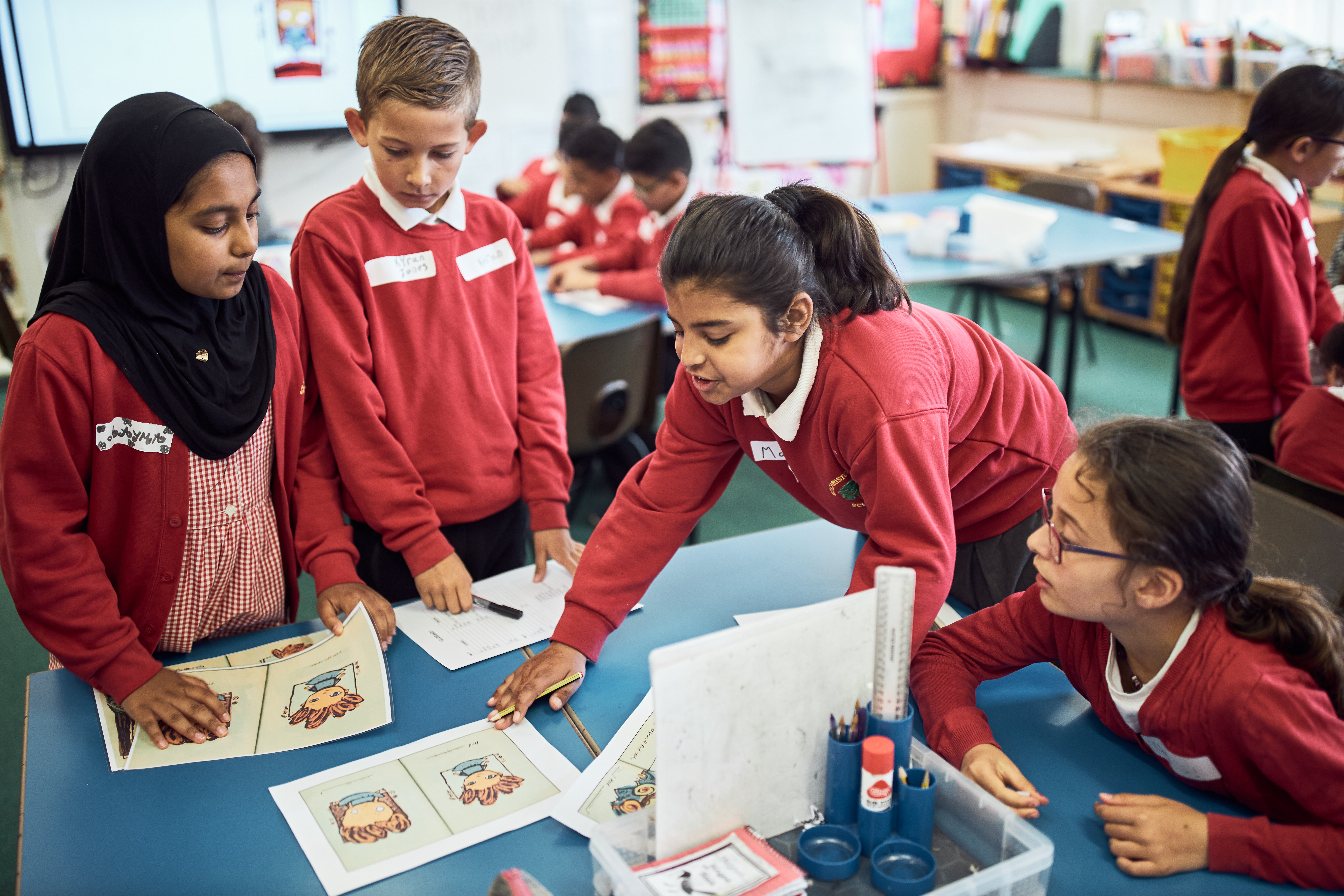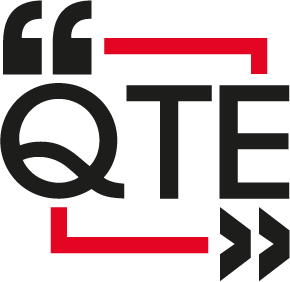The Pedagogies of Feminist Translation Symposium took place on Friday 3rd February in the Shulman Auditorium at The Queen’s College, a partnership between the Feminist Translation Network, The Queen’s College Translation Exchange (QTE) and the Stephen Spender Trust (SST). Over the course of two sessions, a tremendous amount of subject expertise, hard-won wisdom and reflection, and generosity were brought to bear on the three key words in the event title: ‘pedagogies’, ‘feminist’, and ‘symposium’. Indeed, the sharing and pooling of knowledge and the spirit of open exchange modelled what a healthy pedagogy might look, sound, and feel like – and consistently emphasised the interrelation between these three concepts.
In the first panel, for example, translators drew on the experience of teaching other translators, as well as of negotiating the realities of the publishing industry. Translator and co-founder of the Emerging Translators Network, Rosalind Harvey, shared for example how she will ‘try to have conversations in the classroom about the [publishing] industry’ and the ‘labour’ of translators. There emerged, from perspectives of teaching translation, and of teaching texts in translation, consensus on what one panellist called ‘the range of lenses’ ‘needed’ for a ‘good translation’, and that the notion of ‘feminist’ translation is not singular.
This idea was picked up and developed in the second panel, which provided the opportunity to showcase the approach to teaching creative translation in schools which has been developed and honed by SST and QTE, in part through training Student Ambassadors who deliver creative translation workshops in schools. Beth Caygill, a PhD student at the Centre for Catalan Studies at Queen Mary, University of London and an SST Associate, suggested that ‘doing translation in the classroom’ is ‘always a feminist practice’ and reflected on how the classroom can be ‘a space where […] boundar[ies] can be pushed.’ This presentation drew on Beth’s experiences of running creative translation workshops using Catalan and Spanish texts. Stacie Allan, Project Manager at the Stephen Spender Trust, explained the pedagogical model of Decode-Translate-Create which is used by all SST Associates and QTE Ambassadors, and which informs all creative translation workshops run by those two organisations.
What emerged over the course of the two panels was the determination of practitioners, often straddling the worlds of translation, pedagogy, and activism, to challenge the status quo, whether of a publishing industry that renders translation ‘largely invisible, poorly paid, unstable’ (Harvey) or a school curriculum which leaves little time for primary and secondary pupils to experience the joy of translation as open-ended and creative. Just as impressive were the connections between those working in different parts of the translation ecosystem, connections which can only have been strengthened and multiplied by the day’s event. At one point, a participant observed that ‘a feminist translation should be disruptive’, a formulation which puts one in mind of Sara Ahmed’s Feminist Killjoy Handbook (2023) . Ahmed’s work on ‘Complaint as Feminist Pedagogy’ perhaps has its echo in the idea that translation can be a powerful tool of ‘feminist pedagogy’ in its own right, and the individuals determined to share and amplify their knowledge, and to learn from one another, exemplified how to begin putting it into practice.
Sam Miller is studying for a DPhil in History at Jesus College, researching the reception and interpretation of Marx in an English-language context through the work of three ‘women activist translators’, Helen Macfarlane, Cedar Paul and Dona Torr.


